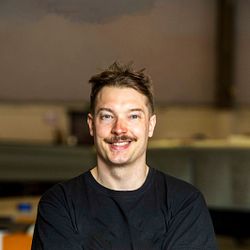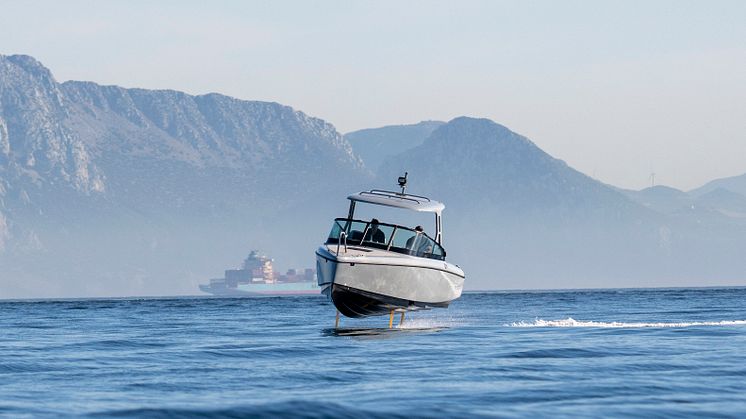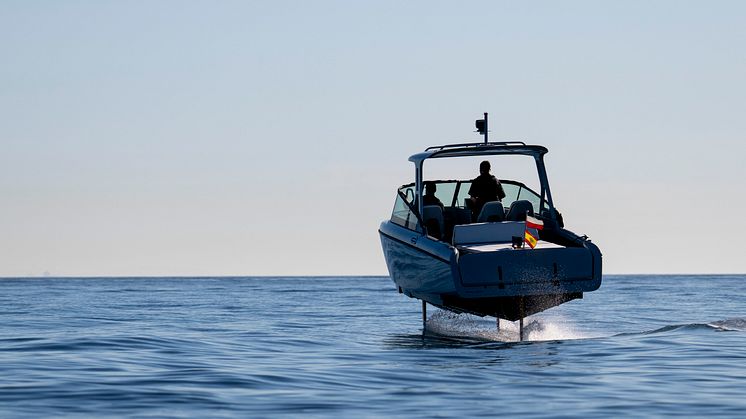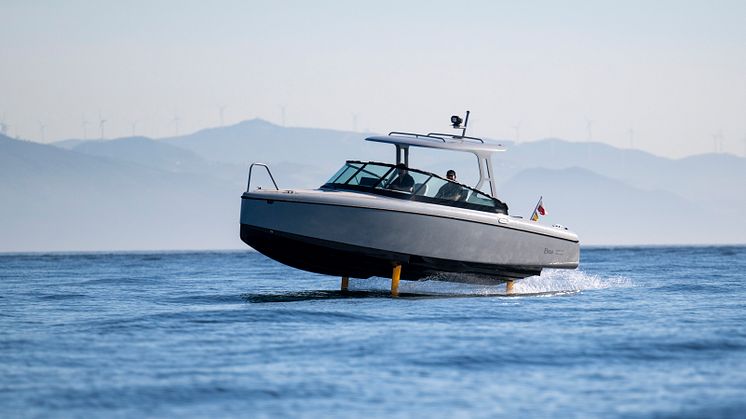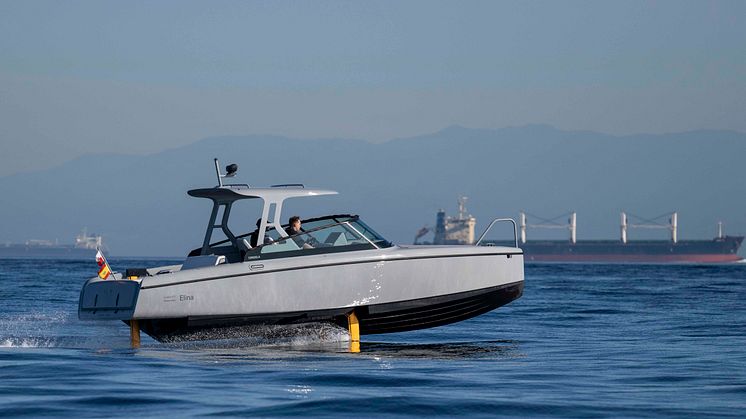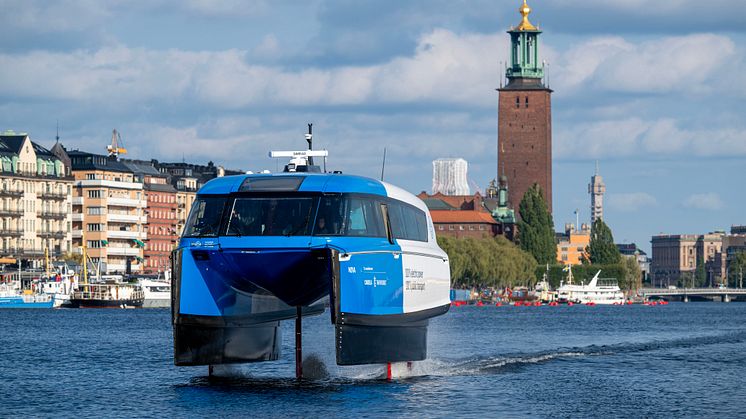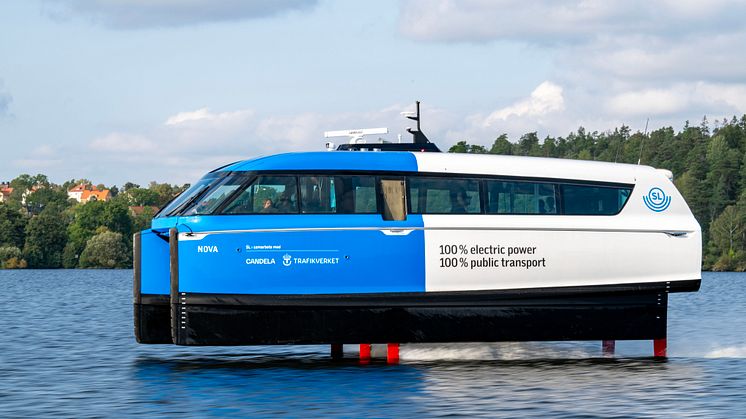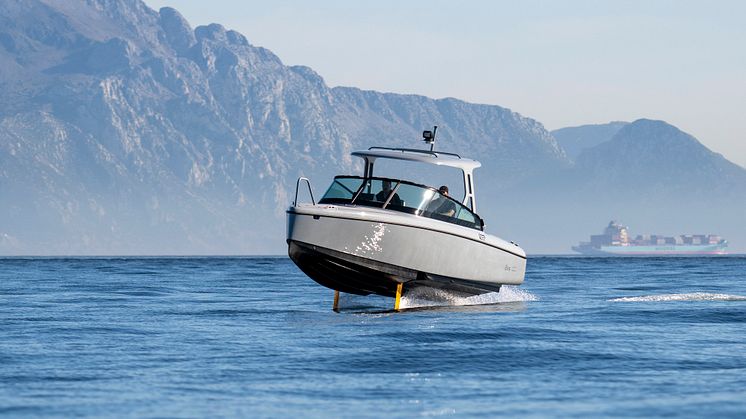
Press release -
Electric Boat Makes Historic First Crossing from Europe to Africa
A Swedish crew has successfully piloted a Candela C-8 foiling electric boat from Europe to North Africa—marking the first-ever intercontinental journey by an electric vessel.
A Candela C-8 Polestar Edition completed the historic voyage from Sotogrande, Spain, to Ceuta, North Africa—a 24-nautical mile trip—in just over one hour, matching the speed of conventional fast ferries. After recharging, the vessel returned to the Spanish mainland the same day.
What sets this record-breaking craft apart is that it’s electric—and it flies. Beneath the surface, two hydrofoils—underwater wings—lift the C-8 above the water, drastically reducing drag and cutting energy consumption by 80% over conventional fast vessels. This breakthrough enables the long electric range needed to cross the Strait of Gibraltar—one of the world’s busiest shipping lanes—for the first time.
The record-setting voyage was undertaken to demonstrate the potential of Candela’s new P-12 electric hydrofoil ferry to deliver clean, cost-efficient transport both along the Spanish coast and across the Strait. Today, this vital corridor—with over 3.5 million annual crossings—is dominated by large diesel car ferries that primarily serve major hubs, making travel time-consuming for those living outside key terminals. Candela aims to complement these essential services by introducing fast, sustainable direct routes that expand access for underserved coastal communities.
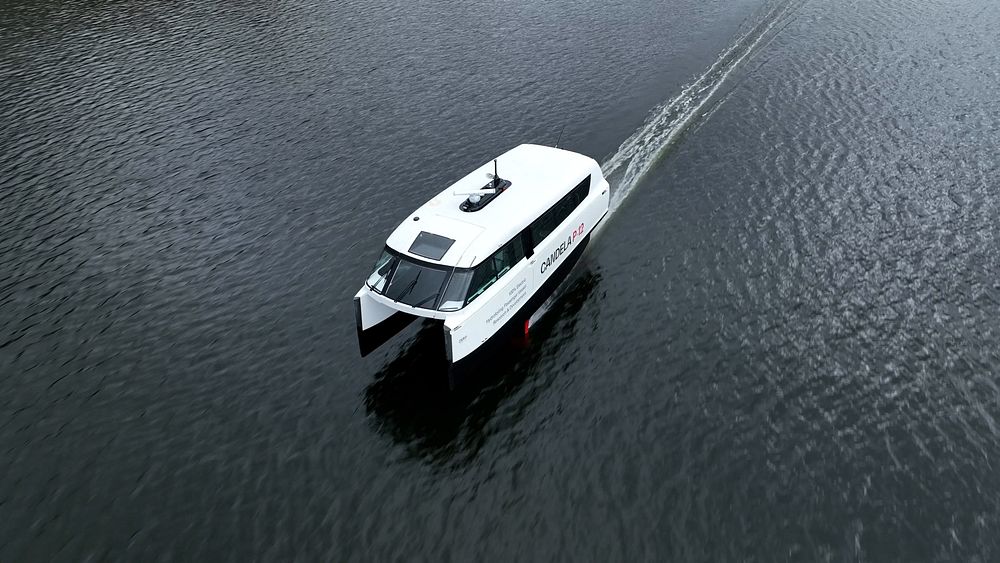
Candela's P-12 ferry.
“There’s a clear need for additional fast, clean, and efficient travel options across the Mediterranean—and for direct lines that wouldn’t be economically viable with larger, conventional vessels,” said Gustav Hasselskog, CEO of Candela and pilot during the crossing. “We can help meet this demand, working alongside existing operators and ferries to boost connectivity and cut emissions—not just across the Strait but also along the coast, for example connecting cities along the Costa del Sol.”
The Gibraltar Strait—where cold Atlantic waters meet the warmer Mediterranean—is known for strong currents and unpredictable seas, making conditions challenging for smaller vessels and uncomfortable for passengers prone to seasickness. This made it an ideal test for Candela’s computer-controlled hydrofoil system, which is often described as a “magic pill” for motion sickness. Using sensors to detect waves, wind, and current, the system automatically adjusts the hydrofoils up to 100 times per second—delivering a ride that feels more like flying than boating.
“It functions much like the flight controller of a modern jet fighter, and works very well. We couldn’t feel the waves, while the photo boat was bouncing around quite a bit,” said Hasselskog.
During the voyage, the Candela C-8 used just 40 kWh of energy—about €8 worth. By comparison, the similarly sized gasoline-powered photo boat burned 50 liters of fuel, costing around €90.
This 90% cost reduction is another key to enabling new routes across the Mediterranean. During a welcome ceremony hosted by Ceuta’s President-Mayor, Mr. Juan Jesús Vivas, Gustav Hasselskog summarized the technology’s core benefits:
“We slash energy use by 80%, eliminate emissions, and enable fast, smooth crossings at a fraction of the cost—opening the door to entirely new, sustainable ferry routes across the Mediterranean.”
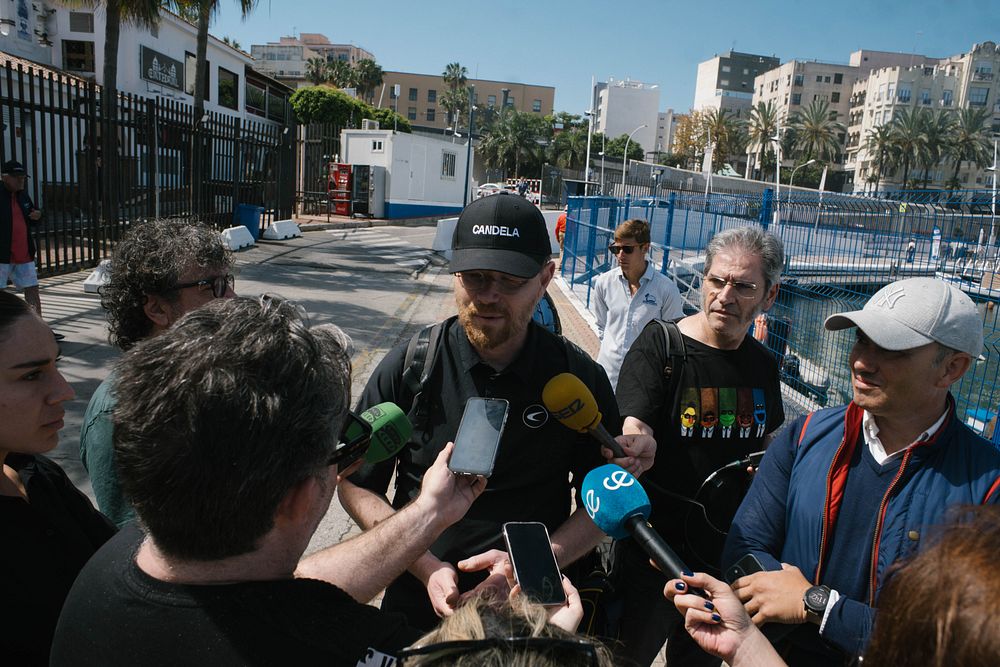
Candela's CEO and founder, Gustav Hasselskog (left), and Avangreen CEO, Manuel Gómez, are greeted by local press upon arriving in the Spanish autonomous city of Ceuta, North Africa.
The crossing was made in partnership with Avangreen, the clean energy company behind Ceuta’s largest solar plant and other electrification projects. Together, Candela and Avangreen aim to lay the foundation for a new era of sustainable maritime infrastructure.
“Enabling sustainable mobility powered by green energy is in the corner stone of our strategy as a company. We’re looking forward to work with Candela to explore the possibilities for P-12 lines in the region”, said Manuel Gómez, founder and CEO at Avangreen, who joined on board the C-8.
Already operating in Stockholm’s public transport system, the Candela P-12, which is the world's first electric hydrofoil ferry, carries 30 passengers at high speed—cutting travel times in half while dramatically reducing operational costs compared to conventional ships. Additional P-12 routes are confirmed with operators in Berlin, Lake Tahoe, USA, Saudi Arabia’s NEOM, as well as New Zealand.
Video:
Images:
https://drive.google.com/drive...
B-roll for editing:
https://drive.google.com/drive...
About the Record-Setting Boat: Candela C-8 Polestar Edition
The latest version of the Candela C-8 was used for the record: the C-8 Polestar Edition, a design collaboration with premium electric carmaker Polestar, which also supplies the batteries for the C-8.
Like all Candela C-8s, the Polestar Edition features a 69 kWh battery and DC fast charging from Polestar, enabling a range of 57 nautical miles at 22 knots, and charging from 10 to 80 percent in just 30 minutes—performance that makes the C-8 the longest-range and fastest-charging electric boat in the world.
In the C-8 Polestar Edition, Polestar’s design team has curated colors and interior materials, drawing inspiration from the aesthetic of Polestar’s cars. Design upgrades also bring expertise from the automotive industry with a specially designed seat upholstery that offers outstanding comfort and enhances the experience of a smooth and silent ride in an electric hydrofoil boat. To emphasise the innovative technology and performance from Candela, the hydrofoils are painted in the iconic Swedish gold colour that characterises the performance details of Polestar’s cars.
Press release on Candela C-8 Polestar Edition:
Related links
Topics
Stockholm-based Candela Technology AB is the world leader in hydrofoiling electric vessels. The company was founded in 2014 by engineer and business leader Gustav Hasselskog with the mission to accelerate the world's transition to fossil fuel-free lakes and oceans by developing electric vessels that outperform those powered by fossil fuels.
Candela's watercraft have wings (hydrofoils) that lift the hull above the water and reduce friction, using 80% less energy than conventional ships at high speed. This technology allows for long-range water travel solely on battery power, a first in the industry. Candela's hydrofoils also enable operators to transition to sustainable fleets by providing up to 50% lower operational costs.
At the heart of Candela's hydrofoil tech stack is the Flight controller, which automatically stabilizes the vessel during flight by regulating the foils, using sensors that gauge wave height and wind speed, among other factors. Even in rough weather, passengers experience 90% less g-forces than they would on a traditional boat. All Candela vessels are fully connected and receive over-the-air updates.
After five years of research and development, Candela began producing the world's first electric hydrofoil leisure boat in 2019, the Candela C-7 open "roadster of the seas". This was followed in 2022 by the high-volume market Candela C-8, which was delivered to the first customers in spring 2023. Over 150 C-8 units have been sold to date, and the vessel has been lauded as a "game changer" by Motorboat and Yachting magazine, winning numerous awards including the 2022 European Powerboat of the Year award for its superior seakeeping, long range, and high speed.
In 2023, Candela launched its first commercial vessel, the Candela P-12 Shuttle ferry. It is the fastest and longest-range electric ship ever built, with a top speed of 30 knots and a range of 40 nautical miles at 25 knots. It is also the most energy-efficient fast ship ever made in its size class. Substantial operational cost savings are expected. The first unit entered service in Stockholm's public transport system in 2024.
Candela is a technology company with headquarters in Stockholm, Sweden, employing over 200 engineers, technicians, and production staff. The company develops the entire tech stack, from the C-POD motor to the control system and carbon fiber hulls, in-house. Candela's two wholly-owned factories in Stockholm, Sweden, produce the Candela C-8 and P-12 vessels. The company also has leisure boat resellers in 12 countries and offices in San Francisco, USA, and Bangkok, Thailand.

